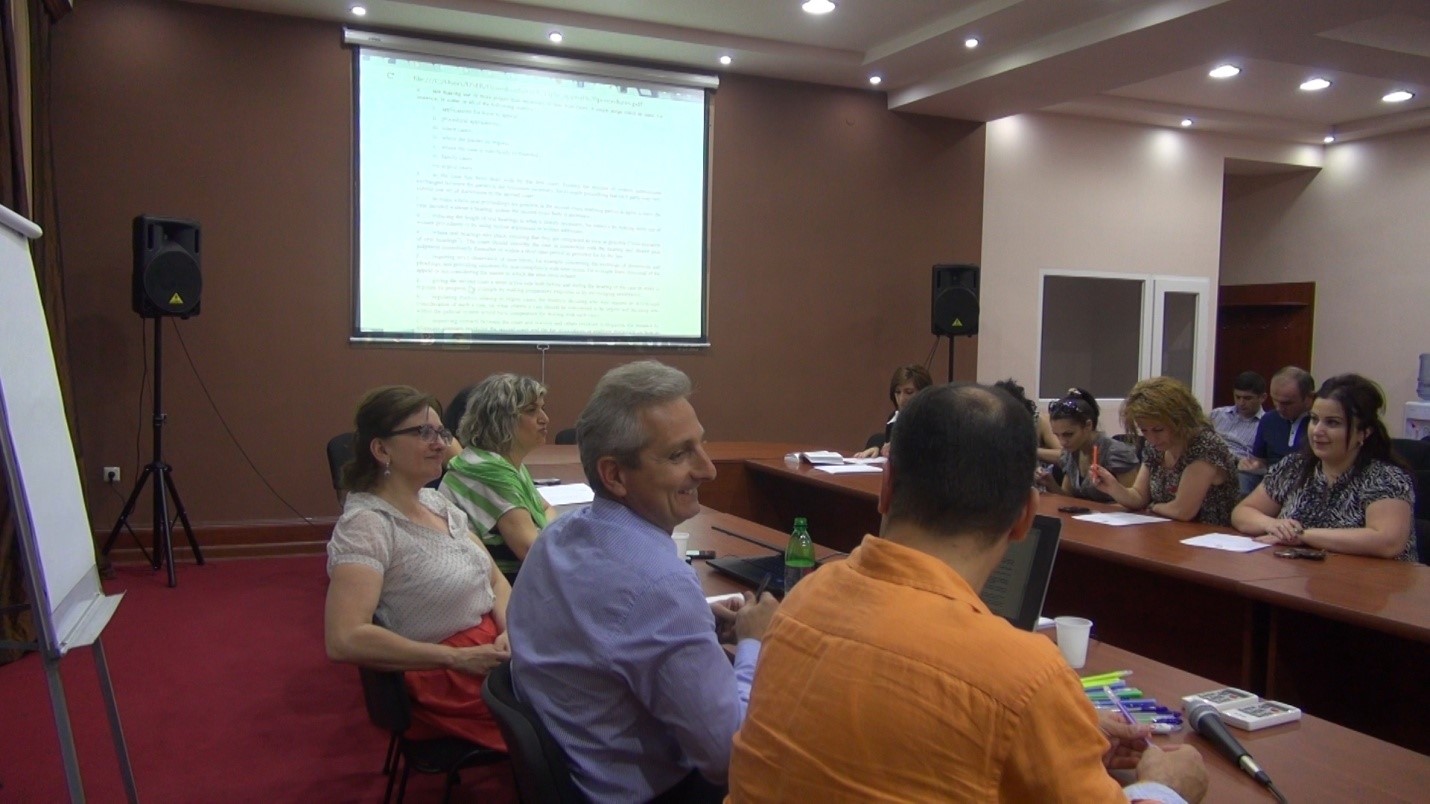ՄԻԵԴ դիմելու չափորոշիչների փոփոխությունները, ՀՀ Վճռաբեկ դատարանի ոչ իրավաչափ պահանջները. մայիսի 25, 2015 թ., Երևան, ՀՀ Փաստաբանների պալատ
Տեքստ
Friday Clubs
The Friday Club is an informal meeting space for advocates, organized by the Chamber at the request of advocates when there is an urgent issue to discuss, such as proposed amendments to legislation which will impact the work of advocates.
To complement this club, created by ABA ROLI with USAID funding and now a sustainable initiative, ABA ROLI and the Chamber agreed ABA ROLI would support the formulation of content for Friday Club sessions by garnering feedback from the criminal defense community on what training topics are needed or what problems defense advocates are facing in practice. The minutes and results of Friday Club discussions are highly publicized to the legal community and the general public through the Chamber of Advocates’ website and Facebook page, and are actively discussed on Facebook. Discussing different issues impacting the legal profession helps advocates in finding and then putting forth a united voice so as to protect, defend, and promote their profession.
The Friday Club continually proves to be an effective meeting place where issues are discussed between key stakeholders, suggestions on possible solutions are explored and constructed, and actions are made based on the suggestions. Prior recommendations drafted from the Friday Club have been brought to State Registries’ attention by the Chairman of the Chamber and have resulted in movement and conclusive results.
Friday Club session- Changes in the standards of applying to the ECtHR, the unlawful demands of the Cassation Court of the Republic of Armenia, 25 May, 2015 Yerevan, RA Chamber of Advocates
Recently the ECtHR changed its requirements with respect to applications, requiring a shorter form for presenting all of the necessary information, regardless of the size or complexity of the case. This new technical requirement became a serious problem for advocates who frequently submit applications to the ECtHR. Expert Arayik Ghazaryan discussed all the new requirements during the session, teaching advocates how to present their claims and the description of the case in the new shorter format requirement. Additionally, it was discussed that the RA Cassation Court has begun to demand that advocates present the Armenian translation of the ECtHR cases which they cite in their appeals.
This brought forth serious problems for advocates for the following reasons:
1. There is no Armenian translation of all ECtHR case law. Moreover, to secure such translation is a significant additional expense for citizens and especially for the PDs, as they do not get reimbursed from the state for such expenses,
2. Securing translations is the state’s obligation because ECtHR case laws is a part of RA legislation. The state has an obligation to make all of its legislation available in Armenian. It cannot put this responsibility on advocates and citizens.
3. Even if the advocates provide a translated version, this will not be considered an official translation. Because mistakes in translation are unavoidable, judges cannot rely on the unofficial translated version.
4. Non-official translations are available on the websites of the RA Ministry of Justice, RA Association of Judges, the ECtHr’s Armenian documents page. Advocates have access to these sources.
During the session, the attendees decided to write a memorandum on the unlawfulness of this requirement of the RA Cassation Court to invite future dialogue.

